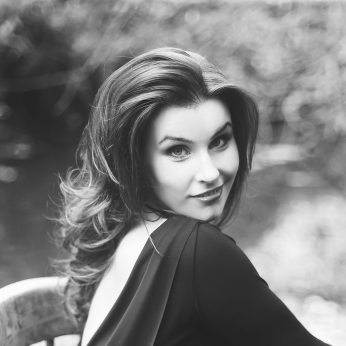Composer: Johann Gottlieb Graun (b. 1708 - d. 1763)
Performance date: 30/06/2023
Venue: St. Brendan’s Church
Duration: 00:18:19
Recording Engineer: Gar Duffy, RTÉ
Instrumentation: S-solo, 2vn, va, vc, lu, hpd
Instrumentation Category:Baroque Ensemble
Artists:
Anna Devin -
[soprano]
Ensemble Diderot (Johannes Pramsohler, Roldán Bernabé [violins], Alexandre Baldo [viola], Gulrim Choï [cello], François Leyrit [bass], Jadran Duncumb [lute], Philippe Grisvard [harpsichord]) -
[Baroque Ensemble]

Cantata – Apollo amante di Dafne
Johann Janitsch was born in Silesia, but spent most of his working life in or around Berlin. He became contraviolinist or bassist in Crown Prince Frederick’s musical establishment at Rheinsberg and later in Berling on Frederick’s accession to the Prussian throne. When still in Rheinsberg, he began the famous Friday Academies, which continued when he moved to Berlin. These were informal gatherings of amateur and professional musicians enabling them to experience chamber music outside the more formal Court repertoire that was usually dominated by the flute playing monarch. Indeed these Friday seessions were proabably an opportunity for musicians to compose works where they could demonstrate their virtuosity amongst colleagues. Janitsch was well-known as a specialist composing quartets in various scorings. His D major Quatuor is in three movements, slow-fast-fast, according to the Berlin manner. With its well-executed counterpoint and surprising harmonic turns of phrase, it points in the direction of the string quartet. One wonders what he thought of Haydn’s invention.
During the early eighteenth century the cello had a difficult journey to escape its imprisonment as merely part of the basso continuo. In late seventeenth century Italy, Vivaldi had broken the mould with his twenty-five cello concertos, but in German-speaking areas the journey lasted much longer. Bach’s Suites were an early breakthrough, but it took skilled cellist-composers like Mára to push their case as soloists. It is thought CPE Bach’s famous cello concertos were written for Mára. Today’s C major Concerto was certainly composed for a highly skilled performer. The opening Allegro is exuberantly cheerful in sharp contrast to the highly decorated but soulful Adagio. The Gigue-like Finale tests the soloist to the limit.
The story of Apollo and Daphne is an ancient Me-Too myth, where the fleeing maiden is transformed into a laurel tree in order to escape her divine raptor, one of many mythical dramas told by Ovid in Metamorphoses. The story as told here treats Daphne’s transformative escape in the first Recitativ before telling how Apollo transforms his desires into worship at the shrine of the unattainable one.
The musical form is the classic Italian solo cantata made familiar by those of Vivaldi, Scarlatti and Handel’s early experiments on his Italian journeys, all composed for a knowledgeable aristocratic audience. Two Recitatives each introduce an aria for mostly soprano voices, creating a vogue for the voices of certain chosen singers.
Graun opens with an accompanied recitative, the voice is Apollo’s as he relentlessly and confidently pursues the terrified Daphne before he is unhinged by the shock of seeing her limbs grow leaves and branches. Recovering himself, he vows to grant her immortality by making her leaves evergreen. In the following E flat major aria, a largo with muted strings, Apollo sings of the laurel as a symbol of purified love, all tension dissipated by the vocal garlands. The contrasting middle section gently accelerates the larghetto and the breezes are instructed to softly kiss her. A short recitative leads to an allegretto closing aria, an elegant minuet with a deliciously catchy melody, where Apollo congratulates himself with a laurel wreath.
Francis Humphrys
Copyright © 2025 West Cork Music. All rights reserved.
Designed and developed by Matrix Internet